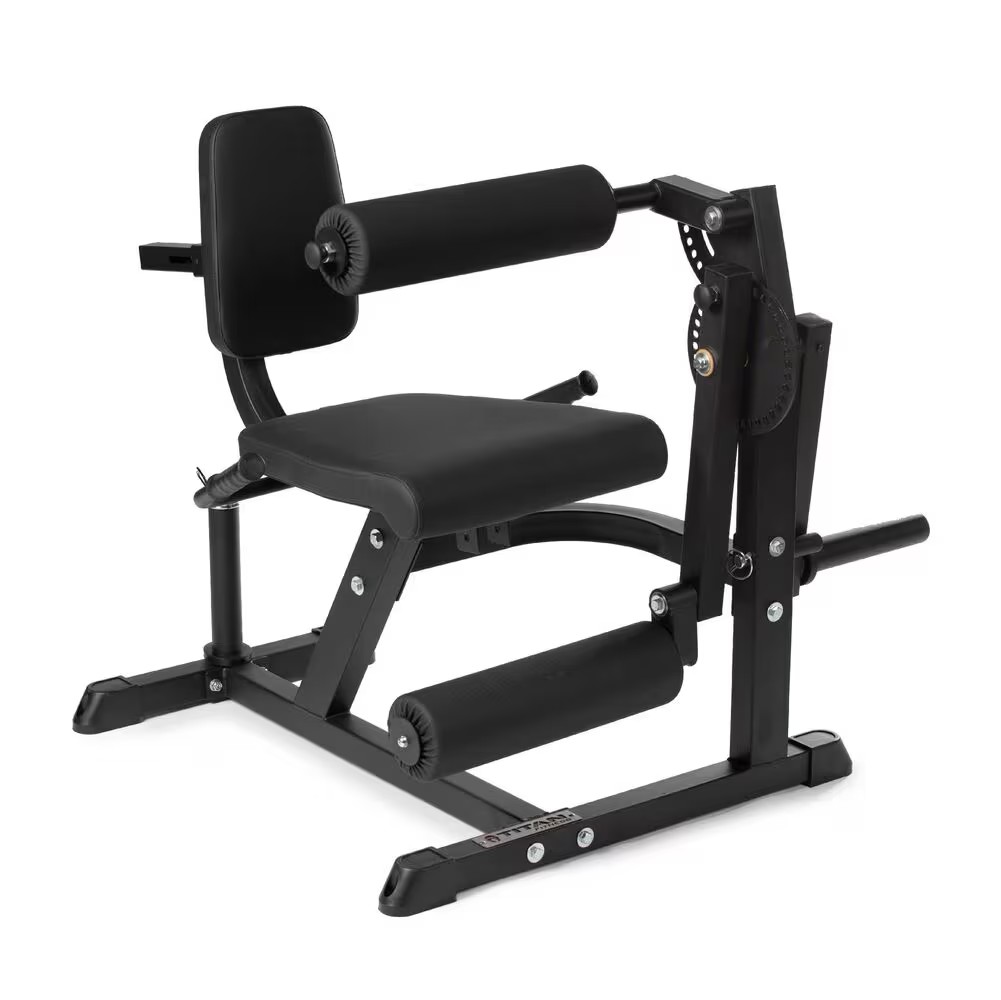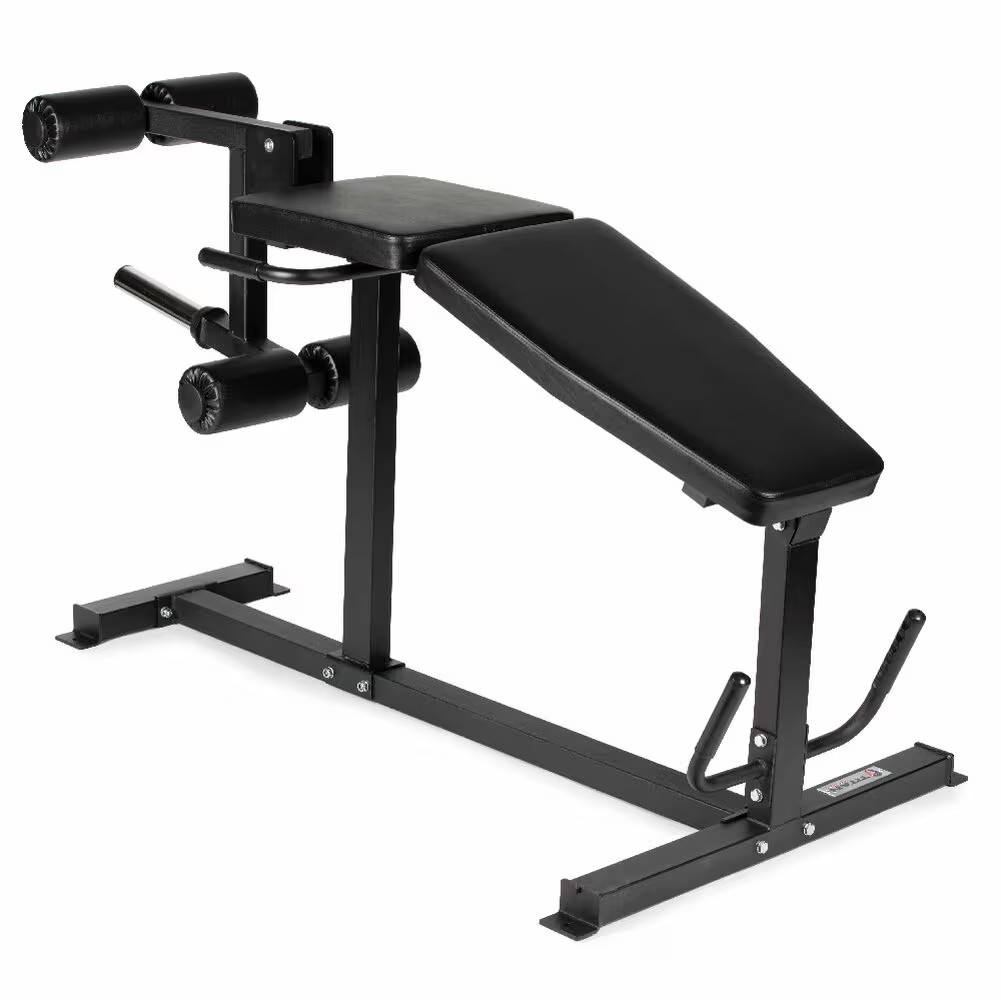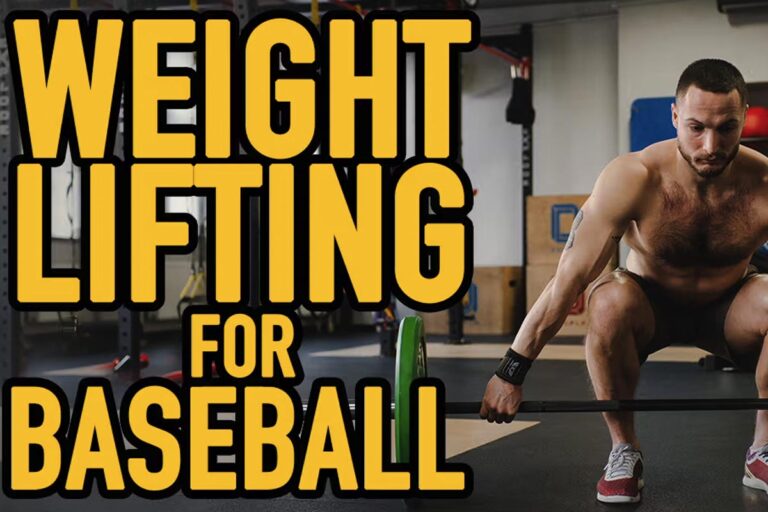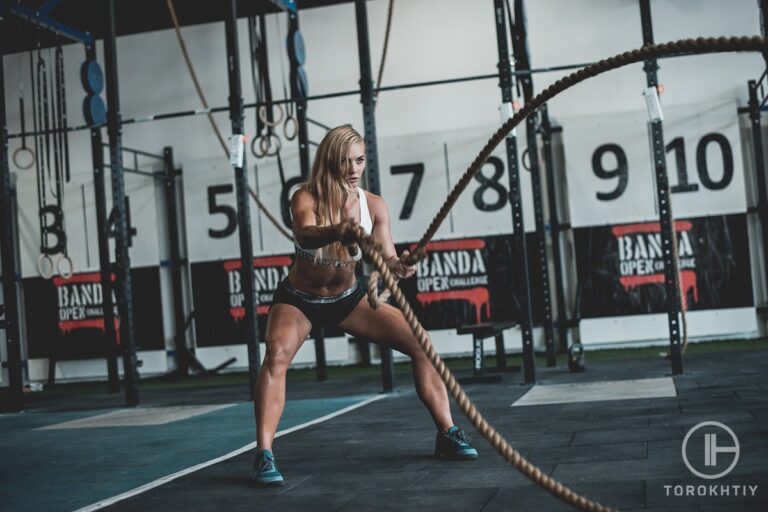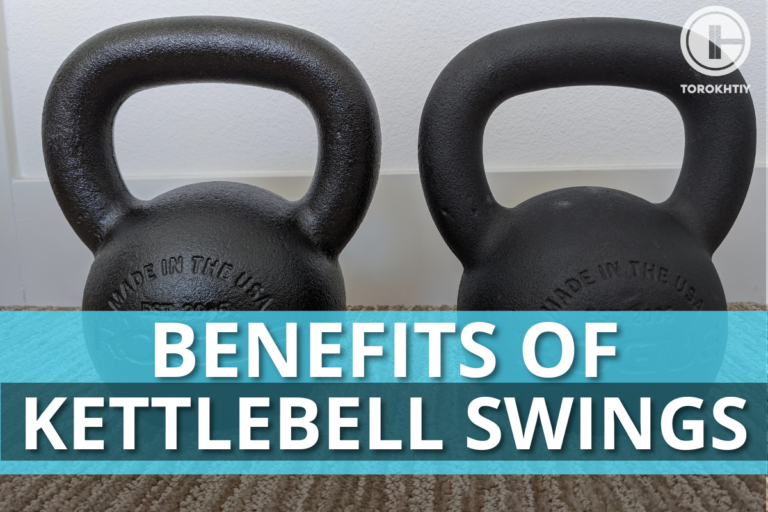Leg Extension vs Leg Curl: Everything You Need to Know
You hear it often from different people in the fitness industry that you shouldn’t forget your leg day. And when it comes to your leg exercises, leg extension vs. leg curl has appeared to be a hot topic online. If you’re wondering whether you should be doing leg extensions or leg curls during the leg day, we’ll discuss how these exercises are different from one another and how you can efficiently use them both.
The main difference between the leg extension vs. leg curl is seen in the muscles that each exercise targets. Though both are leg exercises, leg curls primarily target the hamstrings and surrounding muscles at the back of the legs while leg extension works the quad muscles.
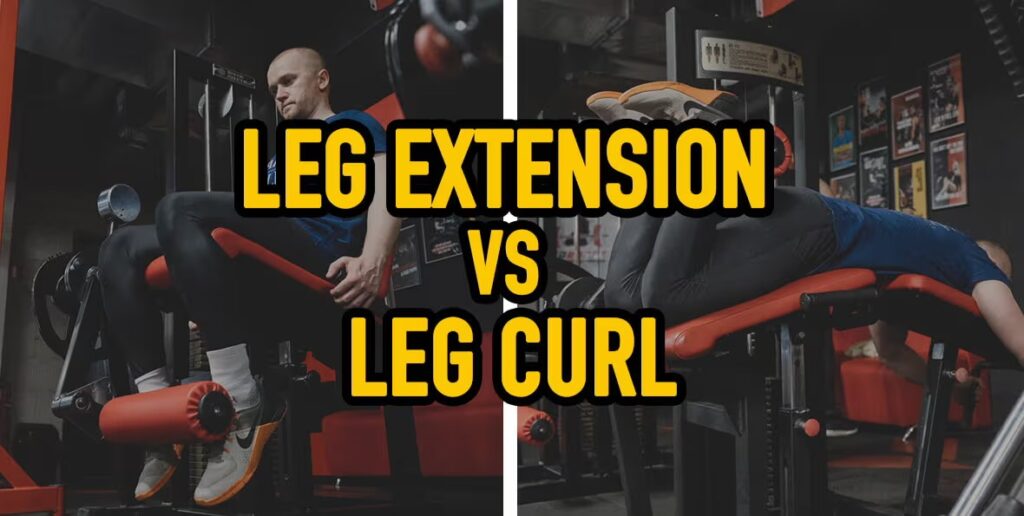
What is a Leg Extension?
Leg extension exercise is usually performed sitting on a machine. The person’s back is usually against a padded seat as he or she straightens the leg. The resistance comes from weights. Depending on the manufacturer, a leg extension machine could either be a pin-loaded or a plate-loaded. Pin-loaded machines have built-in resistance while plate-loaded machines rely on weights.
Leg extension exercise is a good way to complement your squats since it also works on the quad muscles. However, it isn’t something that can serve as an alternative to the squats. The big difference is that leg extension is an isolation exercise. Squats, on the other hand, are considered a compound exercise working on the glutes, thighs, calves, and quads.
Also, trainers caution those who have existing knee problems from using leg extension exercises. If you’re a novice to lifting weights, you might also want to hire a trainer when performing this exercise, since it could lead to a knee injury if you don’t perform the exercise in proper form. Besides, it is next to impossible to get optimum results without the aid of leg extension equipment.
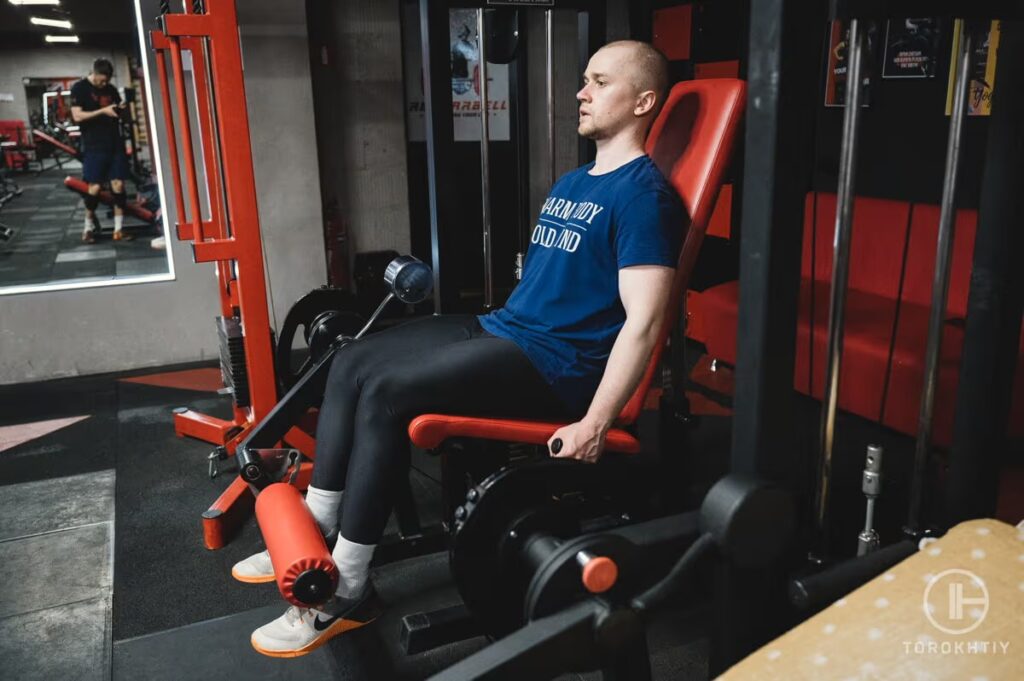
What is Leg Curl?
Now let’s discuss the opposite of leg extension, which is the leg curl. The leg curl is an exercise that targets the hamstrings. It is usually performed using a machine, but it is also possible to do leg curls using a band or weights. For those that have access to a leg curl machine, there are three ways you can perform this exercise.
The first option is the seated leg curl. For the seated leg curl, it works similarly to the leg extension machine. However, instead of the resistance placed in front of the shin, it is placed at the back of the user’s calves. This creates tension when the user gets the heel to his or her butt.
The second type of leg curl exercise is done with the person lying flat on the machine. Just like the first type of leg curl, the resistance is placed at the back of the calves making it difficult to make the heel reach the butt.
And for the third type of leg curl exercise, the person performs the movement with one leg standing. Using the same principles, the resistance is at the back of the calves. Performing leg curls standing up, you will need to fold one leg until your upper and lower legs become perpendicular.
Leg curls are perfect for those who are looking to develop explosiveness. This makes it a good exercise for athletes that participate in sports that require jumping and sprinting. It is also a good exercise for combat sports athletes such as wrestlers, boxers, and MMA fighters.
However, just like the leg extension exercise, the leg curl is an isolation exercise. It is also not suitable for people who are suffering from a knee or a back injury.
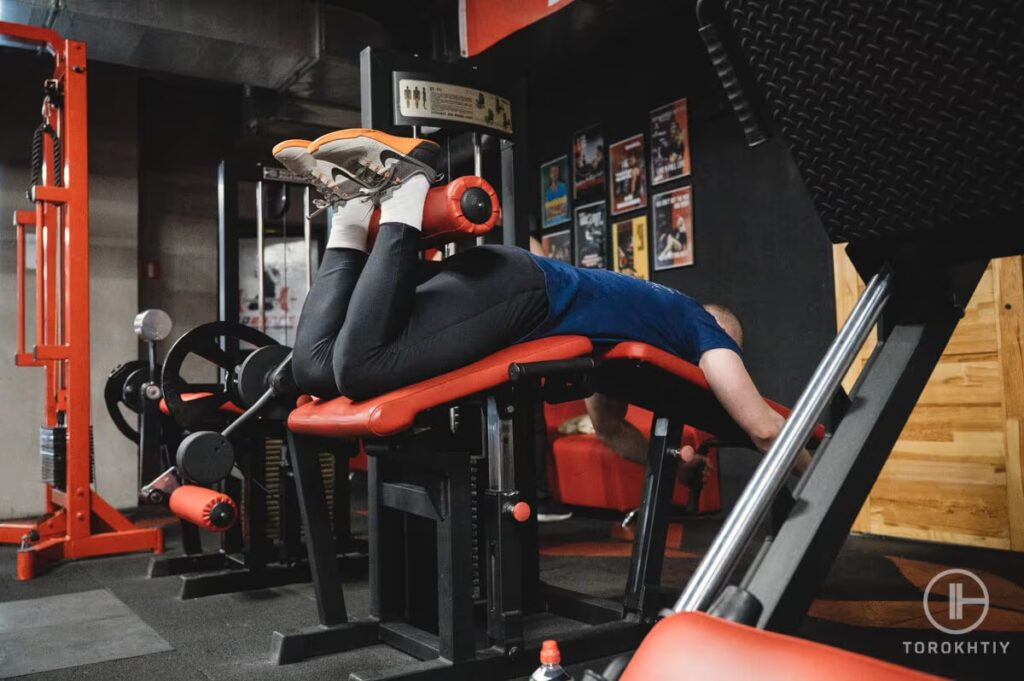
Leg Extension vs Leg Curl
If you can only choose one exercise between leg curl vs. leg extension to supplement your squats, here are a few differences that you should know.
1. Targeted Muscle
The biggest difference between leg extensions and leg curls is the muscle group that the exercises target. The movement of the leg extension exercise involves straightening the leg as if you’re kicking a ball in front, while leg curls involve getting your heel towards the direction of your buttocks.
Since leg extension is a pushing exercise, and the leg curl is a pulling exercise, it also means that it targets different muscle groups in your lower extremities. Leg extensions target the quads while leg curls target the hamstring.
2. Joint Stress
One of the biggest concerns with both leg extensions and leg curls is that it is not a good choice for some individuals. These exercises are usually not suggested for beginners and for those who are suffering from injuries. However, these exercises differ when it comes to the joints that they’d stress.
For leg extensions, it usually affects just the knees. In one study conducted on patients with patellofemoral joint arthritis, it was discovered that leg press is better tolerated than leg extension. The leg extension is said to put a higher patellofemoral joint stress.
Leg curls on the other hand can also hurt the knee. However, it usually affects the lower back, as well. Also, knee pain coming from leg curls is usually coming from excessive hyperextension, poor movement control, abnormal tension in the muscles, or a baker’s cyst. Experts believe that the best way to avoid knee pain during leg curls is by improving the technique and addressing the muscle tension or the baker’s cyst.
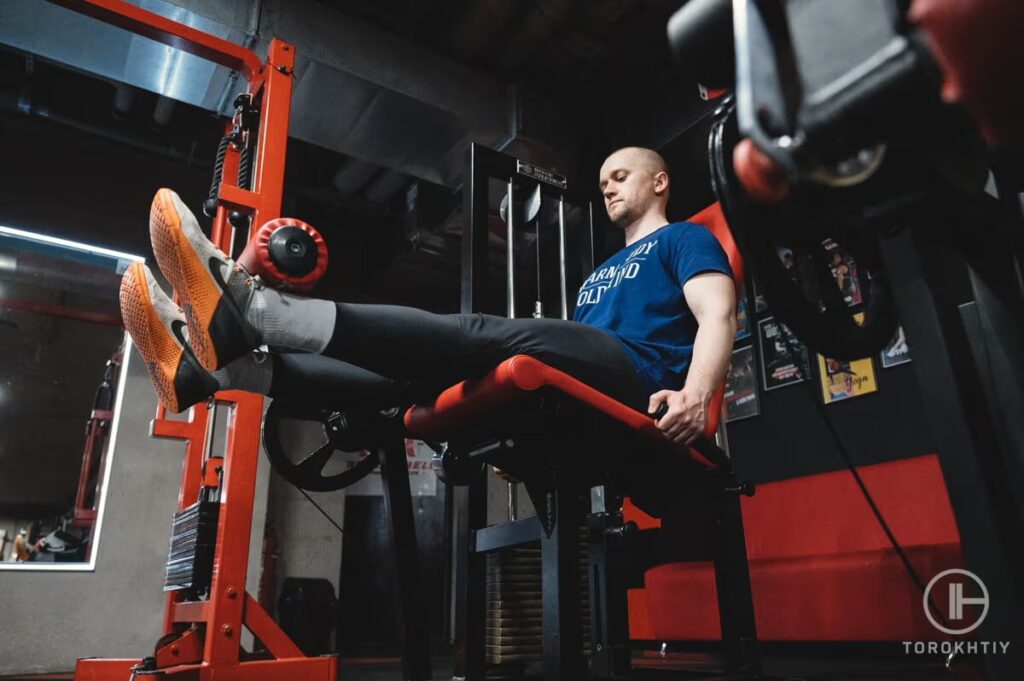
As for back pain issues related to leg curls, it is usually the lying leg curl rather than the seated leg curl that causes this type of issue. The reason behind it is that it is easy for the person performing the exercise to arch his or her back and lift the hips off the pad, whenever he or she is curling the weight lying down.
Arching the back usually helps to curl the weight since it involves the muscles in the lower back. What most people don’t know is that this is bad execution of the leg curl. When it comes to performing the lying leg curl, it is a must that the back remains neutral.
The best way to solve this issue is to start with light weights. As a general rule of thumb, if you feel your lower back aching while performing the lying leg curl, stop and lower the weight.
Equipment Needed
For both exercises, you will most likely need specific gym equipment to make it work. Unlike squats that you can do anywhere, both leg extension and leg curl needs at least a band.
With minimal equipment, it is possible to perform leg extensions using a band or by having ankle weights. This way, you can do the exercise while sitting. The downside is that you can’t use heavy weights if you’re just going to rely on a band or ankle weights.
Unfortunately, seated leg curls with DIY equipment are next to impossible since you will need to have resistance at the back of the calf.
However, it can be performed with minimal equipment if you are going to perform a lying leg curl. For a lying leg curl, the user can squeeze a dumbbell using his or her feet. From here, slowly move the heel toward the hip. The downside to this version of the lying leg curl is that it can be dangerous if you’re going to do it with heavy dumbbells. As an alternative, it is also possible to use ankle weight.
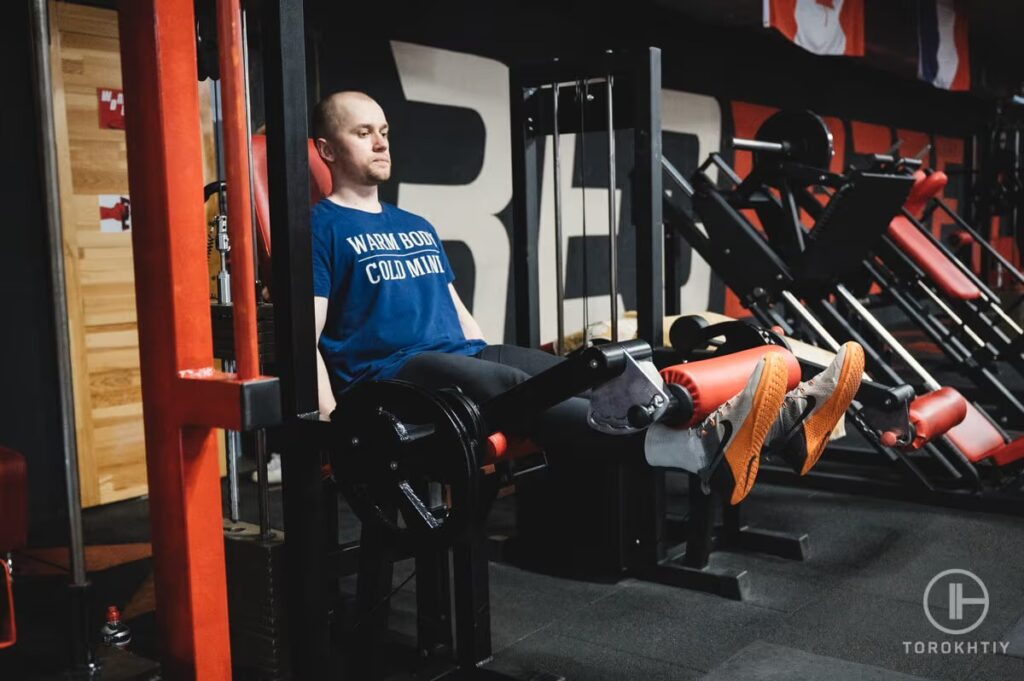
1. Functionality
Another important difference between the leg curl and leg extension is the functionality of each exercise. For leg curls, some studies would support not just its effectiveness but also its benefits in athletic performance.
In the study published by the Journal of Strength and Conditioning Research, researchers conducted a test on a group of female athletes. It was discovered that leg curls can improve hamstring strength. Another study published by the International Journal of Sports Medicine has the same findings after comparing different hamstring exercises. It was discovered that leg curls are effective at improving hamstring strength.
As for leg extensions, it has been a consensus in the fitness industry that it is not a functional exercise even if it can trigger muscle hypertrophy.
However, to some extent, some studies believe that leg extensions are practical. For one, there’s a study published in the Journal of Strength and Conditioning Research that discovered leg extensions to be a good way for older adults to improve their ability to perform activities of daily living. This includes simple activities such as climbing stairs or getting up from the chair after sitting.
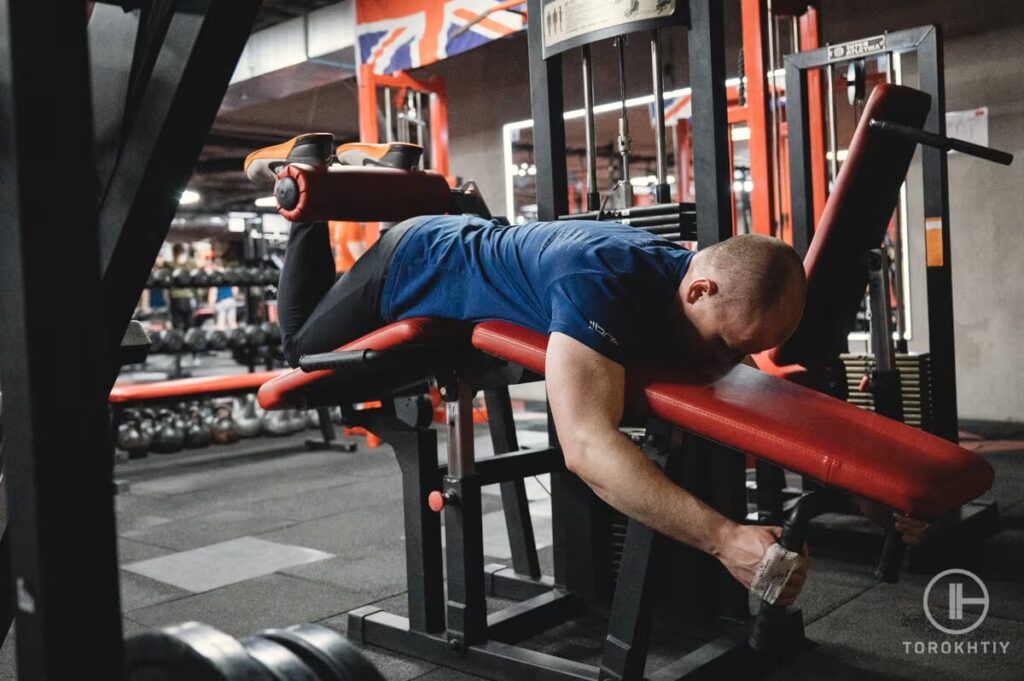
2. Who Should Perform the Exercise?
Athletes who want to improve their explosiveness should do leg curls. It can also help minimize back injuries if you have strong hamstring muscles.
On the other hand, leg extensions are perfect for people who can’t perform squats. Whether you’re having a problem bringing your butt down to the ground, or you feel that you can’t commit to the full range of motion of bending your knees, then this is a good way to still work on your quads. However, it is also important to understand that leg extension exercises should be supervised especially when performed by a beginner, since it could potentially worsen knee injuries.
Our Recommended Leg Extension And Leg Curl Machine (2 In 1)
We recommend the Leg extension and Leg curl Machine V2 for those who are looking to perform leg exercises while sitting down. This equipment promotes gains on both your quads and hamstring while reducing the impact on your knees and your back.
It comes with an ergonomic design and safety features that can give you peace of mind as you try to work on different parts of your legs. It is also perfect for people of different sizes. It comes with 7 seat depth positions and 3 seat angle positions making it a great choice for different body types.
Our Recommended Leg Curl Extension Machine
Now, if you’re looking for a 2-in-1 leg extension and leg curl equipment, the Titan Fitness Lying Prone Leg Curl Extension Machine is a good investment since you get to work your hamstrings and your quads in one equipment.
It comes with a powder-coated black finish and functions both as a leg curl and a leg extension machine depending on how you’re going to position yourself.
This machine comes with a 300-pound capacity allowing you to do some serious work on both your quads and hamstrings.
FAQ
Is Leg Extension The Same As Leg Curl?
No. A lot of people confuse these terms. Some people think that the leg extension is the same as hamstring extension. And for the leg curl, some people think that it is the same as a quad curl. The leg extension is a pushing exercise that works on the quads while leg curl is a pulling exercise that works on your hamstring.
Will Leg Extensions Make Legs Bigger?
Yes. It is a great way to build mass on the quad muscles. However, you will need the right amount of resistance and reps to make this possible.
Conclusion
Both leg extension and leg curl exercises are isolation exercises that can work on different parts of the legs. Leg extensions work on the quads while leg curls work on the hamstrings. However, it is important to understand the risks involved in these exercises. Though both have its benefits, keep in mind that these exercises are not a replacement for squats.
What’s your take about incorporating leg curls and extensions on your leg day? Leave a comment below!
Also read:
- How Much Does a Leg Press Weigh
- What Muscles Does Leg Press Work
- Benefits of Leg Press Machine
- Hack Squat vs Leg Press
- Best Leg Press Machine
References:
- Biomechanical considerations in patellofemoral joint rehabilitation // NIH: https://pubmed.ncbi.nlm.nih.gov /8346760/
- Understanding Knee Hyperextension // Sports-health: https://www.sports-health.com/ sports-injuries/knee-injuries/ understanding-knee-hyperextension
- Your Guide to Exercising with Weighted Vests // Healthline: https://www.healthline.com/health /fitness/weighted-vest-benefits
- Acute Effects of Two Different Stretching Methods on Local Muscular Endurance Performance // Journals: https://journals.lww.com/ nsca-jscr/Fulltext/2011/03000 /Acute_Effects_of_Two_Different_ Stretching_Methods.23.aspx
- Synthesis of carbodiimides by I2/CHP-mediated cross-coupling reaction of isocyanides with amines under metal-free conditions // NIH: https://pubmed.ncbi.nlm.nih.gov /25826468/
- The Effects of Two Different Arm Positions and Weight Status on Select Kinematic Variables During the Bodyweight Squat // Journals: https://journals.lww.com/nsca-jscr/Fulltext/2012 /11000/The_Effects_of _Two_Different_Arm_Positions _and.33.aspx
Why Trust Us?
With over 20 years in Olympic Weightlifting, our team does its best to provide the audience with ultimate support and meet the needs and requirements of advanced athletes and professional lifters, as well as people who strive to open new opportunities and develop their physical capabilities with us.
By trusting the recommendations of our certified experts in coaching, nutrition, dietology, and sports training programming, as well as scientific consultants, and physiotherapists, we provide you with thorough, well-considered, and scientifically proven content. All the information given in the articles concerning workout programming, separate exercises, and athletic performance, in general, is based on verified data. We ensure that you can rely on our professionals’ pieces of advice and recommendations that can be treated as personalized ones which will benefit you and fully meet your needs.
The product testing process is described in more detail here
Author: Ihor Shymechko
Pro Olympic Weightlifter, Coach
Best Results: Snatch – 208 kg,
C&J – 240 kg
Ihor has been a professional weightlifter since 1996, boasting over two decades of competition experience. His notable achievements include clinching the European Championship in 2009 and securing a silver medal in the 105kg division at the Senior World Championships in 2011. Ihor represented his country in the 2008, 2012, and 2016 Summer Olympics. After retiring from competitive weightlifting, he transitioned to coaching, leveraging his vast experience to guide athletes who now compete on both national and international stages.

